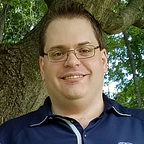Not very often have I come across information that has the potential to advance autism research. While I was working on autism writing for the month of April, information listed on Dr. Temple Grandin’s website caught my attention. “Rigid academic and social expectations could wind up stifling a mind that, while it might struggle to conjugate a verb, could one day take us to distant stars.”
Dr. Grandin theorized that society’s innovative potential rested with the growing number of autistic children. For 30 years, autistic children have been the focal point of research and care. As the focus shifts to older age groups, advancements are being made in adult autism research. Some of these will be profound. I now have evidence linking autistic special interests to suicide and PTSD. The question is who will take this seriously and when.
It all started when I thought about Dr. Grandin’s theory and how to link autistic people with their unique professional passions. To my knowledge, this has not been done with adults yet. As I sought to visualize a solution, I suddenly realized something else. I may be an example of what could happen if an autistic person was not connected with their career interests.
This made me reexamine the issues I had with my previous employment, which I discuss in my article “Part of My Journey is the Journey.” From junior high to the present day, I explain how I believed masking was hindering my ability to make career decisions. Then, this week, I found information from reliable sources that proved something much bigger. I was not the only one struggling with indecision, which impeded my development and affected my mental health.
The following details have been revised to safeguard the privacy of those involved. A young woman in her twenties was found to be struggling with choosing a career path. The strain was so great that she exhibited signs of post-traumatic stress disorder (PTSD). While in the care of a specialist, she was then diagnosed as autistic. This in itself was fortunate, given how often women have been less likely to be taken seriously for early autism assessment.
Additional information revealed that she had also graduated college with a liberal arts degree. It was stated that this was specifically due to difficulty with indecision. At the same age, I graduated college with the same degree for the exact same reason. I only know more about autism now because I was diagnosed late, at the age of 37. Long enough to see the long-term impact on my life.
Finally, there is an imperative link between neurodivergent autism and what masking does to our mental health. For so many years, I have been struggling with persistent depression from an unidentified source. All this time, I was masking a monotropic pull towards special interests, and it was ruining my life. I can work, but my career path has been too inconsistent for me to integrate into society despite this much time.
The more time passed without a solution, the more my mental health suffered. This proves what can happen if our need to make a living conflicts with not being connected to our special interests when it comes to employment. Those over 21 or who were labeled as high-functioning were not taken seriously. This meant that the study of masking’s destructive impact on us over a longer period of time was not prioritized.
If we are unable to follow our neurodivergent interests, suicide and PTSD are now proven consequences of what can happen. How many more diagnosed and undiagnosed autistic people suffer from the suppression of occupational special interests? How many of us are still here but are struggling because of it? This is not a scare tactic. I have used firsthand experience and factual evidence to prove my case.
These are detailed and legitimate examples to prove the link between autism, masking, and special interests. Now, we can be prioritized by mental health professionals as well as prospective employers. And some of us may have a limited amount of time and strength to withstand the strain on our mental health. Conversely, imagine what would happen if our passions and intelligence were connected to our special interests.
Dr. Grandin’s theory could become a reality — with stunning results.
#LetThatThinkIn
Welcome to the next Autism Experience.
Fixation, Otherwise Known as Laser Focus.
